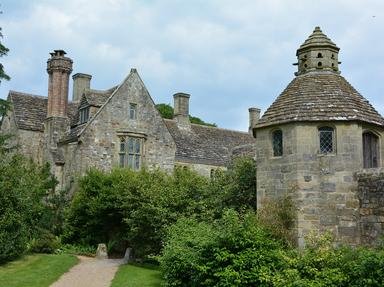Quiz Answer Key and Fun Facts
1. Georgiana Darcy, the younger sister of Mr. Darcy of 'Pride and Prejudice' fame, had a fortune of £30,000. Which man, whom she had known since childhood, did she plan to elope with from Ramsgate?
2. Jane Austen described Emma Woodhouse, the eponymous heroine of 'Emma', as "handsome, clever and rich" in the opening sentence of the novel. However, the exact size of Emma's fortune (£30,000) wasn't mentioned until after she had declined an offer of marriage. Who was her unsuccessful suitor?
3. Caroline and Louisa, the sisters of Mr. Bingley in 'Pride and Prejudice', both had dowries of £20,000. However, which of them had married a man of "more fashion than fortune" prior to the events of the novel?
4. Although Jane Austen never named the amount of Eleanor Tilney's fortune in 'Northanger Abbey', she came from a wealthy family and her mother had a dowry of "twenty thousand pounds and five hundred to buy wedding clothes". To what rank of the peerage was Eleanor elevated on her own marriage?
5. Miss Mary King became one of the richest girls in Meryton when she inherited £10,000 from her grandfather during the course of 'Pride and Prejudice'. After becoming a target for the mercenary Mr. Wickham, she went to live with her uncle in which northern city?
6. Although Maria Bertram planned to marry the somewhat stupid Mr. Rushworth in order to have "the enjoyment of a larger income than her father's", Sir Thomas Bertram was a wealthy man and his daughters were definitely rich young women. What was the outcome of Maria and Rushworth's relationship in 'Mansfield Park'?
7. In 'Sense and Sensibility', Marianne Dashwood was jilted by Mr. Willoughby in favour of a rich heiress who had £50,000. What was the maiden name of the lady who became Mrs. Willoughby?
8. In 'Mansfield Park', Edmund Bertram fell in love with a rich young lady with financial wealth, but whose morals and character didn't live up to his expectations. What was her name?
9. Highbury's clergyman, Mr. Elton, married a woman with "so many thousands as would always be called ten" during the events of Jane Austen's 'Emma'. She turned out to have a tendency to boast incessantly about the estate owned by her brother-in-law. What was it called?
10. While the fortunes of most rich young ladies in Jane Austen's works are measured in thousands of pounds, one is instead the heiress to a grand estate called Rosings Park. In which novel does this character appear?
Source: Author
Fifiona81
This quiz was reviewed by FunTrivia editor
looney_tunes before going online.
Any errors found in FunTrivia content are routinely corrected through our feedback system.
